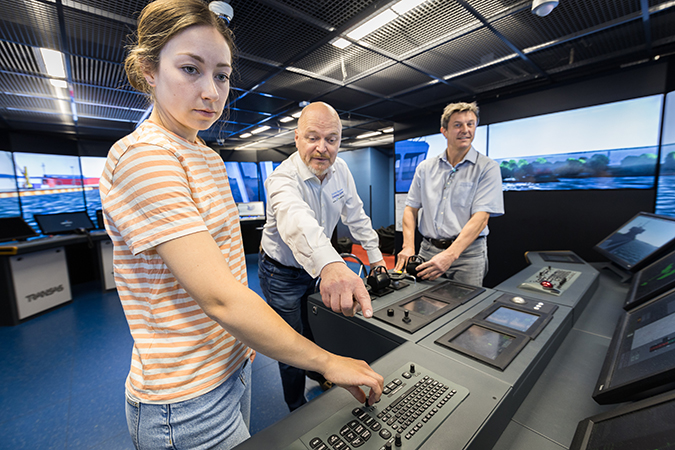Sustainable Flow – Sustainable flow of goods and decreased CO2 emissions of transportation
The life and business in the Central Baltic countries are extremely dependent on the Baltic Sea in transportation of goods (i.e. freight transport/ cargo traffic). The transport sector emits greenhouse gases, especially carbon dioxide, CO2. The flow of goods at sea, ports and on hinterland (i.e. intermodal/multimodal transport systems) urges to be environmentally, economically and socially sustainable, especially to reduce CO2 emissions and to tackle the climate crisis.
CO2 emissions are reduced by the Sustainable Flow project in intermodal/multimodal transport system on flow of goods. We develop a digital tool for CO2 reduction measures; furthermore, measures are developed for energy savings and production of renewable energy in ports as hubs of multimodal operations. Implementation is done through real-life pilots, which are in transport nodes for sea and land. There are seven intermodal transport nodes/areas systems with CO2 reductions (ports of: Rauma, FI; Pori, FI; Mariehamn, Å; Norrköping, SE; Oxelösund, SE; Tallinn, EE; Riga, LV). A practical open access online tool is developed for CO2 reduction as a main output. The project provides decision-making tools with practical solutions for various stakeholders to reduce their CO2
emissions in intermodal/multimodal transport systems already during the project and well beyond.
Cross-border co-operation ensures that the developed tools are the most suitable and appropriate for Central Baltic geographical and other conditions. The partnership combinates different organisations to ensure best available knowledge, methods, and solutions to be used. Sustainable Flow is globally the first project focusing both on developing digital tools and focusing on energy savings & renewable energy to reduce CO2 emissions in transport sector, especially on maritime and ports.


